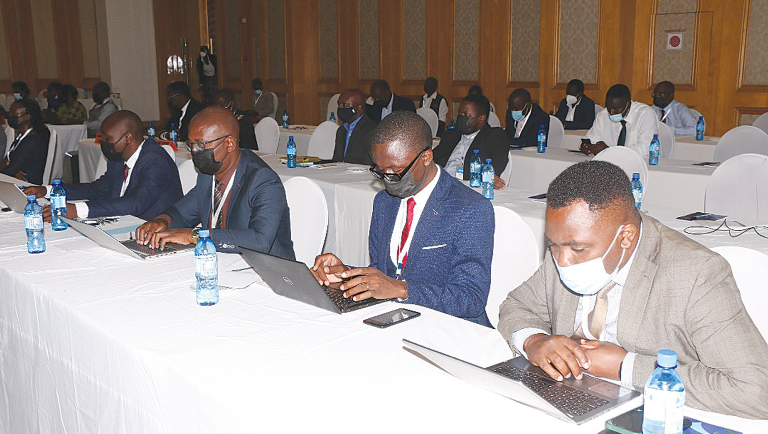Sadc rues non-tariff barriers
The Southern African Development Community (Sadc) says non-tariff barriers are critical impediments to the successful implementation of the African Continental Free Trade Area (AfCFTA).
Sadc executive secretary Elias Mpedi Magosi said this yesterday in Lilongwe during the opening of the two-day African Union High-Level Stakeholders Conference on the AfCFTA held under the theme AfCFTA: An Engine for Africa’s Social and Economic Transformation.

He said the barriers should be eliminated to catalyse intra-trade at both regional and continental levels.
Magosi said: “The free trade area is not an open cheque, it requires hard work, determination and focus to realise its intended objectives and resultant benefits.
“It is, therefore, essential for Sadc member States to take note of the importance of a robust structural transformation as we pursue implementation of the AfCFTA.”
He said other factors that may limit the attainment of the benefits of the AfCFTA include the limited industrial base of most African countries, which depend on trading in primary goods mainly from agriculture and extractive industries and poor facilities for trade facilitation across Africa, among others.
On the supply side, Magosi said the AfCFTA must promote continental value chains to enhance structural transformation of African economies.
Head of mission of the African Union (AU) for Southern African Regional Office, Jean Pierre, said AfCFTA is one of Agenda 2063 flagship project, and one of the cornerstones of Africa’s integration, which could be the last opportunity for Africa’s economic transformation.
He said: “This trade initiative will diversify intra-African trade as it will increase the ratio of industrial goods to extractive goods and natural resources in favour of industrial goods.
“It will ease the process of importing raw materials from other African countries and thus give small and medium enterprises a better chance of succeeding.”
Minister of Trade and Industry Mark Katsonga said it is only through working together that member States can build regional value chains that will advance transformative industrialisation, help Africa obtain a fairer share of the global trade and improve the lives of people.
“In the modern commercial world, it is only innovative and competitive businesses, which will succeed on the market place,” he said.
United Nations acting resident coordinator Rudolf Schwenk said to successfully exploit the opportunities that AfCFTA offers, Malawi and many other countries in the region need to continue to make their industries more competitive.
He said countries need to build a competitive production base, one that produces goods and services that are competitive on the international market in a number of dimensions.
“So far, small market sizes stand as a key constraint to building such competitive productive base. AfCFTA provides a solution for this,” said Schwenk.
AfCFTA will create a single market of goods and services of about 1.2 billion people, increase trading among African nations and create a gross domestic product of more than $2.5 trillion across all 55 member States of the AU.
When fully ratified, AfCFTA is expected to be the world’s largest free trade area since the formation of the World Trade Organisation.





